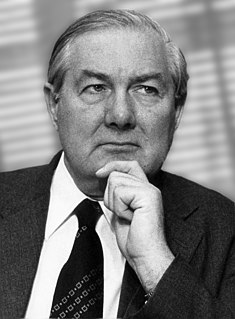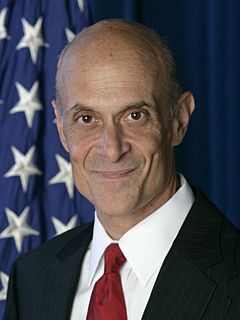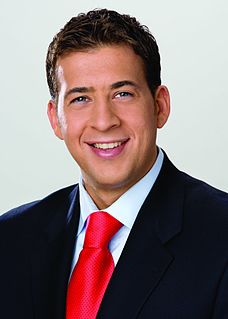A Quote by Robert Reich
Here's why I think the public service jobs are almost unavoidable: When we have downturns in the economy - and we will, for we haven't repealed the business cycle - unemployment will build, yet we no longer have any safety net. What are we going to do? Unless we decide to pull out all the stops and lower interest rates immediately and risk turning a recession into wild inflation, we're going to have to figure out some way of providing some more, not job security, but employment security.
Quote Topics
Almost
Any
Build
Business
Cycle
Decide
Economy
Employment
Figure
Going
Immediately
Inflation
Interest
Interest Rate
Interest Rates
Job
Job Security
Jobs
Longer
Lower
More
Net
Out
Providing
Public
Public Service
Pull
Rates
Recession
Risk
Safety
Safety Net
Security
Service
Some
Stops
Think
Turning
Unavoidable
Unemployment
Unless
Way
Why
Wild
Will
Related Quotes
No politician can praise unemployment or inflation, and there is no way of combining high employment with stable prices that does not involve some control of income and prices. Otherwise the struggle for more consumption and more income to sustain it-a struggle that modern corporations, modern unions and modern democracy all facilitate and encourage-will drive up prices. Only heavy unemployment will then temper this upward thrust. Not many wish to confront the truth that the modern economy gives a choice only between inflation, unemployment, or controls.
We used to think that you could spend your way out of a recession and increase employment by cutting taxes and boosting government spending. I tell you in all candour that that option no longer exists, and in so far as it ever did exist, it only worked on each occasion since the war by injecting a bigger dose of inflation into the economy, followed by a higher level of unemployment as the next step.
So people have to decide. Do they want to have the security? Do they want to continue to plug the gap [in border security] that GAO has identified and recognize that there will be some costs to doing that? Or do we want to make sure that business isn't hampered and that people can move back and forth readily, and recognize that, if we don't put some barriers in place, we're going to wind up with dangerous people coming into the country?
Human beings have a drive for security and safety, which is often what fuels the spiritual search. This very drive for security and safety is what causes so much misery and confusion. Freedom is a state of complete and absolute insecurity and not knowing. So, in seeking security and safety, you actually distance yourself from the freedom you want. There is no security in freedom, at least not in the sense that we normally think of security. This is, of course, why it is so free: there's nothing there to grab hold of.
The time will come, and probably during 2009, that the only way the U.S. will be able to fund its deficits is to create money by printing it. The Treasury will have to sell bonds, and, in the absence of foreign buyers, the Fed will have to print the money to buy them. The consequence will be runaway inflation, increasing interest rates, recession, and inevitable tax increases on all Americans.
Our inner cities are almost at an all-time low, run by the Democrats for sometimes more than a hundred years, chain unbroken. So they have no jobs. They have horrible education. They have no safety or security and I say to the African-American community, what the hell do you have to lose? I will fix it. I will fix it. I will make it good. I'll bring back our jobs. We'll have good education. We'll have great safety in the inner city.
You know, there is an argument to be made that these extensions of unemployment benefits keep people from going and finding jobs. In fact there are some studies that have been done that show people stay on unemployment compensation and they don't look for a job until two or three weeks before they know the benefits are going to run out.
The bottom line for Canada is that Kyoto will precipitate a recession that will cause a permanent reduction in employment, income and the size of our economy. And if global warming is going to happen Kyoto will do nothing whatsoever to prevent it or even slow it down. Why are we still considering it?




































